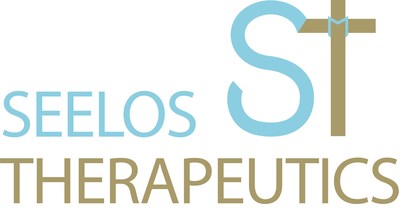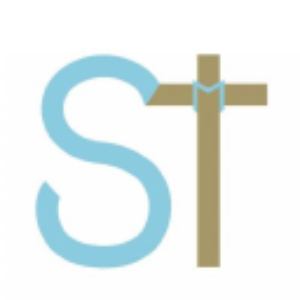Seelos Therapeutics Announces Receipt of Minutes from its End of Phase II Meeting with the United States Food and Drug Administration (FDA) Highlighting Modifications to the Primary and Secondary Endpoints of its Phase II Study of SLS-002
- Company plans to continue its previously announced potential partnership discussions and expects to proceed to Phase III with SLS-002 in Adults with Major Depressive Disorder (MDD) at Imminent Risk of Suicide
In the meeting minutes, the FDA agreed that the primary endpoint in a Phase III trial could be the change from baseline in the
"We are very excited about the potential that SLS-002 has to address the unmet need of acute suicidality. We are working to design one robust Phase III trial that has the potential to demonstrate a statistically persuasive effect utilizing agreed FDA endpoints," said Raj Mehra, Ph.D., Chairman and Chief Executive Officer of Seelos.
"We want to thank the FDA for this collaborative discussion and look forward to future discussions on the modifications for the Phase III protocol that align with what SLS-002 previously demonstrated in the Phase II study," said Tim Whitaker, M.D., Chief Medical Officer of Seelos. "We also want to again thank all of the study participants and study sites who helped us gather important data in the Phase II study. This will help us refine the potential Phase III study. We also look forward to participating in the
In 2022 there were 49,449 suicides in the
If you or a loved one are having thoughts of suicide, please seek immediate medical help, go to your nearest emergency room, or call the Suicide and Crisis Lifeline at 988 or 1-800-273-8255 (TALK).
About SLS-002
SLS-002 is intranasal racemic ketamine with two investigational new drug applications for the treatment of Acute Suicidal Ideation and Behavior in Major Depressive Disorder and in Post-Traumatic Stress Disorder. SLS-002 was originally derived from a Javelin Pharmaceuticals, Inc./Hospira, Inc. program with 16 clinical studies involving approximately 500 subjects. Seelos looks to address an unmet need for a therapy to treat suicidality in the
About Seelos Therapeutics
Seelos Therapeutics, Inc. is a clinical-stage biopharmaceutical company focused on the development and advancement of novel therapeutics to address unmet medical needs for the benefit of patients with central nervous system (CNS) disorders and other rare diseases. The Company's robust portfolio includes several late-stage clinical assets targeting indications including Acute Suicidal Ideation and Behavior (ASIB) in MDD, PTSD, amyotrophic lateral sclerosis (ALS) and spinocerebellar ataxia (SCA), as well as early-stage programs in Huntington's disease, Alzheimer's disease, and Parkinson's disease.
For more information, please visit our website: http://seelostherapeutics.com, the content of which is not incorporated herein by reference.
Forward Looking Statements
Statements made in this press release, which are not historical in nature, constitute forward-looking statements for purposes of the safe harbor provided by the Private Securities Litigation Reform Act of 1995. These statements include, among others, those regarding the Phase II study of SLS-002, statements regarding SLS-002's prospects and potential, statements regarding any potential market opportunity for SLS-002, statements regarding any planned meetings and discussions with the FDA, statements regarding any potential partnerships and discussions related thereto, statements regarding the Company's expectations to proceed to a Phase III trial for SLS-002 in adults with MDD and the protocol, trial design and endpoints for any such trial and the Company's participation in the DOD's PTSD platform trial. These statements are based on Seelos' current expectations and beliefs and are subject to a number of risks and uncertainties that could cause actual results to differ materially from those described in the forward-looking statements. Risks associated with Seelos' business and plans described herein include, but are not limited to, the risk of not successfully executing its preclinical and clinical studies, not being able to move forward with the development of SLS-002 after the anticipated end of Phase II meeting with the FDA, and not gaining marketing approvals for SLS-002 and/or its other product candidates; the risk that prior clinical results may not be replicated in future studies and trials (including the risk that the results from the prior studies of SLS-002 may not be replicated or may be materially different from the results of Part 2 of the Phase II study of SLS-002); the risks that clinical study results may not meet any or all endpoints of a clinical study and that any data generated from such studies may not support a regulatory submission or approval; the risks associated with the implementation of Seelos' business strategy; the risks related to raising capital to fund its development plans and ongoing operations; the risks related to Seelos' current stock price; as well as other factors expressed in Seelos' periodic filings with the
Contact Information:
Anthony Marciano
Chief Communications Officer
Seelos Therapeutics, Inc. (Nasdaq: SEEL)
300 Park Avenue
(646) 293-2136
anthony.marciano@seelostx.com
https://seelostherapeutics.com/
https://twitter.com/seelostx
https://www.linkedin.com/company/seelos
Mike Moyer Managing Director
LifeSci Advisors, LLC
250 West 55th St., Suite 3401
(617) 308-4306
mmoyer@lifesciadvisors.com
![]() View original content to download multimedia:https://www.prnewswire.com/news-releases/seelos-therapeutics-announces-receipt-of-minutes-from-its-end-of-phase-ii-meeting-with-the-united-states-food-and-drug-administration-fda-highlighting-modifications-to-the-primary-and-secondary-endpoints-of-its-phase-ii-study-of-302039967.html
View original content to download multimedia:https://www.prnewswire.com/news-releases/seelos-therapeutics-announces-receipt-of-minutes-from-its-end-of-phase-ii-meeting-with-the-united-states-food-and-drug-administration-fda-highlighting-modifications-to-the-primary-and-secondary-endpoints-of-its-phase-ii-study-of-302039967.html
SOURCE Seelos Therapeutics, Inc.








